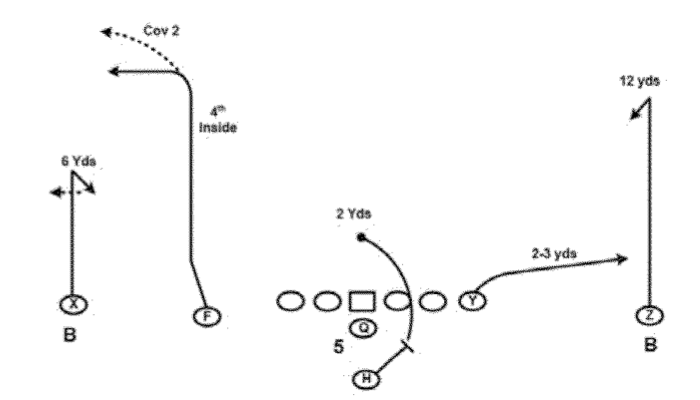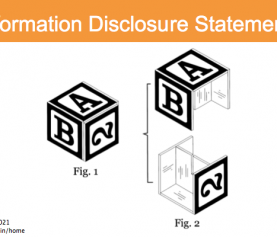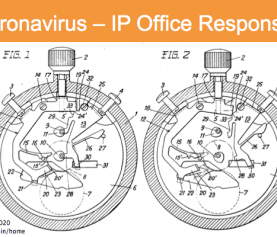Should you assign patent rights?
You have an idea for a product, an app, or a service, and you want to pursue patent protection. But should you assign patent rights to your company? Or if you haven’t started a company, should you so that you can assign the patent to it? Like any business decision, there are pros and cons to each choice. This post assumes that you are an inventor (see my post on who is a patent inventor and what is inventorship) for patent application purposes, and that you are an owner of your company – if you’re an employee, the situation is different. Let’s look at legal considerations.
What does it mean to assign patent rights?
When you assign patent rights, you transfer all ownership and control of the patent application and any patents that come from it. A different option is to license your patent rights. A license may be a complete transfer of the ability to use the patent, but a license can also be limited: it could be temporary; it could be revoked; it could be limited by when or where the licensee can use the patent rights, or by what products the licensee can make, or by how many users or sales the licensee may have. A license can be exclusive, so that you license to only that licensee, or it could be non-exclusive, so that you could license to more than one person or company. An assignment is not a license – an assignment is complete.
Should you form a company?
If you plan to make or sell products, or offer a service, it almost always makes sense to form a company. Having a company will make it easier to use your patent to help generate a revenue stream. And having a company can give you protection from personal liability, provided you follow corporate rules and manage the company properly. If you don’t have a company, you should assess whether it makes business sense for you to form one, and you should consult an attorney about your business plans. And for a cautionary tale on forming a partnership, rather than a company, have a look at my post on the Apple Computer founders and partnerships.
Should you assign your patent rights to your company?
If you’re a founder or co-founder, or co-owner, of a company, you may be required to assign any rights in any patent applications and issued patents to your company, bearing your patent strategy in mind (see my posts on a staged provisional patent application strategy, and on choosing a patent strategy). This assumes the inventions relate to the company, as it may be the reason you’ve founded the company. And if you aren’t obliged to assign your patent, should you? Usually, my recommendation is that you should.
There are advantages to assigning your patent rights to your company:
Clarity. Assigning the rights means your company has a more clear right to make, use, and sell the product or service covered by the relevant patent or patents – it’s actually the right to exclude others from doing so. If you don’t assign, you’ll have to license the rights to the company. A license will require more work (which means more expense) than an assignment. And if you try to save money on the license by finding an example and changing the names, you risk losing one of the key benefits of having a company: the protection from personal liability.
Notice. The assignment is public, and should be recorded at the USPTO – this puts everyone on notice that the company owns the patent rights.
Negotiations. When you assign patent rights to your company, you can take advantage of the corporate structure to negotiate licenses and royalty agreements with other companies.
Valuation. Assigning your patent rights to your company helps to build the asset valuation of your company, which will be important to any investors or lenders you may seek. Investors and lenders will often require you to assign patent rights to your company before they will complete a transaction with your company.
There are disadvantages to assigning your patent rights:
Control. For most founders, the primary concern in assigning patent rights to their company is the potential loss of control of their patent rights. If you lose control of your company as a condition of receiving investment, or due to mismanagement of the company, or because of other circumstances, you may not be able to recover control of the patent rights. But taking on investment is generally necessary and beneficial – or you wouldn’t do it; and other circumstance leading to a loss of control are much less likely and are within your control.
Costs. It will cost some money to incorporate and complete the assignment. But those costs are relatively small, and they come with many benefits. And if you’re wondering about the costs of a patent application, take a look at my post on patent application cost.
How do you assign patent rights?
To assign patent rights, each inventor must sign an Assignment Agreement, which can be a relatively simple two-page contract. The Assignment Agreement must assign all rights to any patents that are issued relating to the patent application. The assignment must be recorded with the USPTO, using the Electronic Patent Assignment System. This can be done any time before the patent is issued by the USPTO. The Assignment Agreement doesn’t have to be signed when we file a patent application.
Other considerations?
When your company owns a patent, it can affect the asset valuation of the company, which can have consequences for your tax and accounting. You should discuss this with your tax attorney and/or your accountant before proceeding to assign patent rights. Do you have questions about the process of patent prosecution or patent assignments? I’d be glad to hear from you in the comments. Call me at 617-340-9295 or email me at my Contact Me page. Or, find me on Facebook, Twitter, Google+, LinkedIn, Google Local, or Avvo.







[…] This information is needed for a patent application because this will determine whether the company can file as a small entity or a large entity, which has a big effect on USPTO fees. This also will indicate whether the company has properly controlled and gotten assignments of the rights to the invention. […]